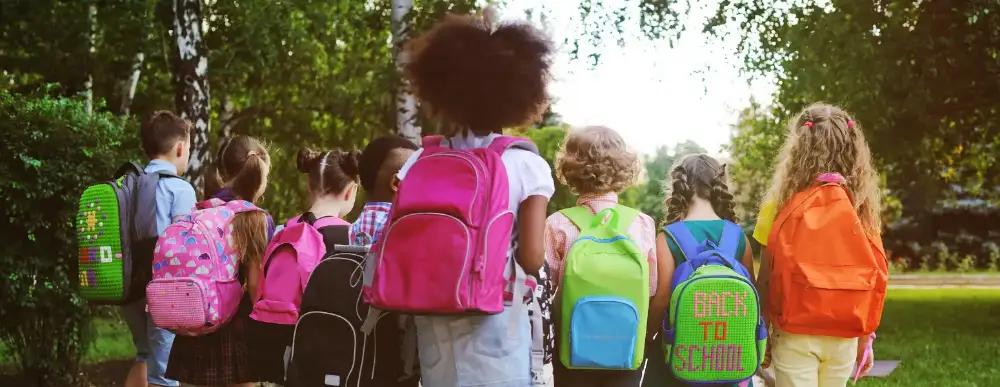For many families, back to school feels very different this fall after the abrupt transition to remote learning last spring. In addition to a feeling of excitement about seeing friends and teachers, children may also experience anxiety and fear about going back to school; anxiety about COVID-19, being behind academically, meeting new children, being in a new school, etc. These feelings are all understandable and to be expected, so how do we prevent normal fears from becoming a bigger problem? Below are some tips for parents about how to help children start out the school year happy and excited to learn!
Establish a routine: The world feels like a chaotic place right now, which can make children feel unsafe and insecure. Having a predictable routine can be calming for both children and parents. Think about morning routines, after school routines, and bedtime routines and tasks involved at those times of the day that can be made into a schedule. Once you have those tasks, post the schedule someplace visible where everyone in the family can see it and refer to it throughout the day.
Provide reassurance: It’s normal for children to look for reassurance in situations that are new (e.g., What if I don’t make any friends? What if I can’t keep up with the work?). It can be helpful to reassure children that they are safe and will be able to manage the situation. Just be aware of offering excessive reassurance—once or twice is enough.
Praise children when they face their fears: One of the goals of parenting is to teach children to cope with situations that may be stressful or difficult. A great way to do this is to praise children as soon as you notice that they are facing their fears and overcoming the challenges related to a difficult situation. It may be tempting to allow your child to avoid situations that make them nervous, but this strategy can backfire and make anxiety worse.
Show empathy: Children learn how to cope with difficult situations, among other ways, by looking to adults and seeing how they react. Parents and other adults should talk to children about their own anxieties and fears and share strategies that they found helpful. It’s important to communicate to children that having fears and anxiety is normal, but that it’s important to learn good coping strategies to deal with these emotions so they don’t lead to impairments in day to day functioning.
In most cases, anxiety will begin to fade within the first few weeks of school as children become more comfortable. If the anxiety doesn’t fade and begins to interfere with daily functioning (e.g., refusing to go to school, excessive crying, poor grades), it may be an indication that treatment is warranted. The good news is that we have good evidence-based treatments for children and adolescents that can assist families through challenging times. You can reach out to Health West at (208) 2327862 or other community organizations for help, we are all in this together!
Dr. Erika Coles, Ph.D. is a licensed psychologist who works at Health West in the School-based mental health program.








